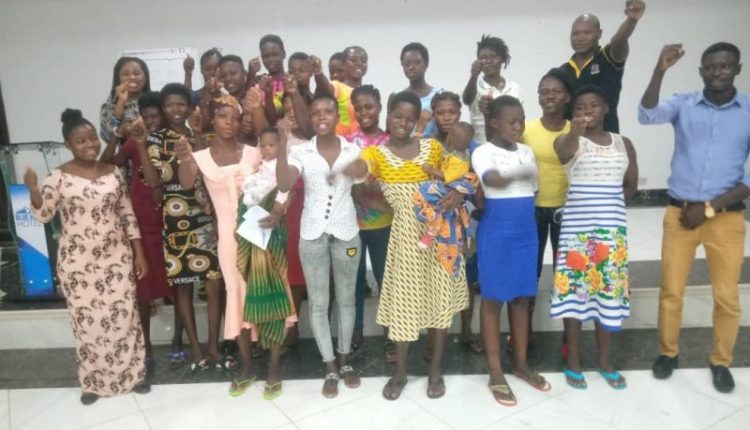Harnessing Talents for Rural Development (HATAFORD), a non-governmental organisation (NGO) in the Jirapa Municipality, has appealed to the National Health Insurance Scheme (NHIS) to make Family Planning products and services available to adolescents.
HATAFORD explained that Family Planning products and services were not accessible and affordable to adolescents in the rural communities and districts in the Upper West Region.
The NGO also observed that the high costs of these products were a contributory factor to the use of unsafe methods and practices among adolescent girls to terminate pregnancies, which resulted in many deaths.
Mr Nii Ankonu Amorbah-Sarpei, Director of Programmes at Alliance for Reproductive Health Rights and representative of the NGO, was speaking at a two-day training workshop organised for some adolescent girls from the Jirapa Municipality.
The aim was to empower the girls to reach out to their peers and educate them on issues affecting adolescents to prevent teenage pregnancies.
The participants treated topics on adolescence and puberty, sexual and reproductive health, sex and gender-based violence, pregnancy, and its related issues, including menstruation, drug and substance abuse.
Mr Amorbsh-Sarpei said, “Many of them are not also working and could not afford to pay for services rendered them at the private health facilities, a situation that compels them to truncate girls’ education”.
“Several of them get pregnant within the teenage space, thereby limiting their scope and efforts to progress and achieve their dreams,” he said.
The Alliance for Reproductive Health Rights, an NGO, is supporting HATAFORD to implement the project in Jirapa with funding from the United Nations Population Fund and the Canadian Government.
Mr Amorbah-Sarpei said peculiar challenges were affecting adolescent girls, especially the out-of-school girls.
He explained that HATAFORD was trying to get the girls to change their attitudes, understand issues affecting their sexuality, sexual reproductive health and equip them with information that could help them make the right choices in the future.
“Several issues are upsetting adolescent girls in the Jirapa Municipality and early girl marriage is the topmost practice, which caused many girls to drop out of school, and efforts were being made to address it”, he said.
Mr Amorbah-Sarpei noted that for a long time the rights of adolescent girls were put on the periphery and the NGO was working towards creating a space dubbed: “Adolescent Health Fair” where girls and boys would congregate and learn issues that affect each sex, especially the value of abstinence.
Some of the participants expressed disappointment that some societies tend to associate the practice of abstinence to girls only and chastise girls who do not abstain, noting “boys should also be encouraged to practice abstinence to help prevent teenage pregnancies and sexually transmitted diseases”.
They mentioned early marriages, lack of parental care, poverty, teenage pregnancy, lack of family planning products as challenges affecting them in the Jirapa Municipality and urged stakeholders to work together to address them.
The participants appealed to parents, especially mothers to enhance access to adolescent sexual reproductive health information and services to their girls to prevent teenage pregnancies. Source: GNA


Comments are closed.